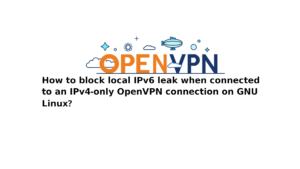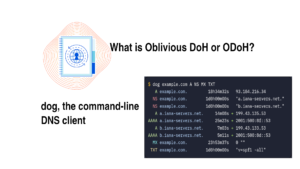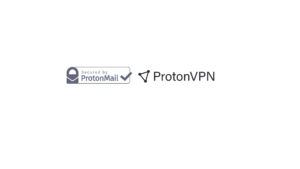According to American Registry for Internet Numbers (ARIN), it was during the end of the 1980s when the Internet Engineering Task Force (IETF) started mulling over the grave issue of IPv4 address exhaustion owing to startling growth of the Internet. All the related groups came together come up with a successor of existing IPv4 protocol and to solve the issue of IP address exhaustion in generations to come. The amount of time consumed finally become fruitful in form of a ‘Draft Standard’ of Internet Protocol version 6 was published by IETF in now obsolete RFC2460. It was only on 1st July 1999, when the Internet Assigned Numbers Authority assigned first IPv6 address blocks of size ::/23 to ARIN and other Regional Internet Registries (RIRs) viz. APNIC and RIPE NCC. Previous ‘Draft Standard’ of IPv6 specification has gone through a lengthy global scrutiny of over 18 years to be a full Internet Standard as published by IETF in RFC8200 on 14th of July 2017. It was great news for the future of Internet and successor of IPv4 known as IPv6.

IPv6 have been advertized as a replacement for IPv4 as it is the most recent version of Internet protocol, one of the primary communication protocol on Internet. It did not go according to the plan as IPv6 penetration has not been as desired and quite uneven around the globe ever since the first allocation of IPv6 blocks. According to stats from Google, about ~30-33% used IPv6 to access their services in the month of July this year. If you take a look at their country-wise adoption figures, you cannot ignore the non-uniform adoption rate of IPv6. In India scores a healthy 46.85% and Belgium has 54.41% IPv6 adoption rate. Even countries like Sweden has a low adoption rate at 5.74% only. Most of the Africa lacks IPv6 adoption and connectivity. Regardless, I must say the adoption rate and availability of IPv6 is quite good, as there a lot of ways to get IPv6 connectivity even if your ISP is not ready yet with IPv6 tunnels or IPv6 VPNs as a user.
According to a Internet Society’s State of IPv6 Deployment report from 6th June of 2018, over 25% of all Internet-connected networks advertise IPv6 connectivity.
Nearly half a billion people use IPv6 among just the top 15 ISPs combined. Nearly half of all IPv6 users on the planet today are in India.
98.4% (1519) of the TLDs have IPv6 name server addresses and can be queried using either IPv4 or IPv6.
In 2012, less than one in a hundred connections to Google services used IPv6. Today that number is nearly one in four.
If you still believe IPv6 is not well received the same report also talks about intention of companies like Facebook, T-Mobile USA, LinkedIn and Microsoft to turn IPv4 off within their networks or data-centers and operate IPv6-only.
Further IPv6 deployment measurement ranked by overall traffic volume as of 8th July 2020, shows 91.15%, 94.80%, 63.60% IPv6 deployment by India’s Reliance Jio, T-Mobile USA and Brazil’s Claro Brasil respectively.
Below figure shows increasing IPv6 deployment and their ranks. It is happening world-wide. It is not segregated as wrongly assumed.
The question is, what good is IPv6 only hosting for?
IPv6 is a recent, well thought, updated version of Internet Protocol version 4 designed and developed primarily owing to IPv4 exhaustion rate. IPv6 deployment is rapidly increasing. What more do we need? Because you asked, let us briefly go through a couple of legit and valid arguments in favor of IPv6 for a private user or freelancer or small-business owner.
Today, a lot of mainstream server or hosting providers offer IPv6-only VMs or VPS for users at reduced cost. To name a few, there is American Vultr, Austrian IPAX, Swiss IPv6onlyhosting, French Gandi etc
IPv4 is an unnecessary for a lot of use-case. Costs much more.
It is simply cost effective to go with an IPv6 only hosting. You could save up to 50% cost in renting a VM or VPS for your personal or business hosting purposes.
Reliance JIO, in India, started deploying IPv6 after its local Internet registry ran out of IPv4 address space. Reliance has been forced to purchase IPv4 address space as a result, but for business reasons prefers not to.
Depending on your needs you might not need a dedicated IPv4 at all. For example, if you are hosting a community specific forum where you know everyone has IPv6 connectivity, you could just deploy your project on a IPv6-only VM and save money on it. If you pick any provider from the once listed above for instance, IPv6onlyhosting, you can rent a base Kernel-based Virtual Machine (KVM) with a gigabyte of RAM in Switzerland for 2.5 CHF a month only.
If you compare it with their own dedicated IPv4 enabled hosting called datacenterlight, you need to shell out 11.5 CHF or 10 CHF a month if you compare it with a competitor Exoscale. So, unnecessarily just to have IPv4 for no reasons, you will end up spending 4 to 4.6 times more money renting a VM or VPS every month.Similarly you can save 1 USD on the base VM for Vultr and get a whole VM for 1 EUR a month only at IPAX.
IPv6 gives you control with redundant IP addresses
The beauty of IPv6 is that you can get a block of /48 or /64 for free from your hosting provider or Tunnel-brokers without any cost mostly or at very little one-time charge in a few cases. These are more than enough IP addresses for unique users you will ever get in a lifetime. You can deploy multiple services using different public IPv6 addresses without having to worry about keeping the IP reputation clean for everything. A small business running a email service always fears the amount of harm a notorious user can end up doing to the whole network or service.
With IPv6, you can assign all devices in your network a public IPv6 address and decide / control which services to expose publicly.
IPv6 networks grants you liberty to assign public IP addresses and design your network like you desire without having to waste a lot of monetary resources on IPv4 leases. Things are going to get more expensive for small businesses to run public services when over time big corporation or a group of companies have hold of most IPv4 space.
With IPv6 every device can directly communicate with another. The spirit of self-hosting get even stronger with access to IPv6 public addresses for everyone. IPv6 also supports more-secure name resolution called SEND protocol. Also, IPv6, when properly implemented, could make man-in-the-middle (MITM) attacks significantly more difficult.
NAT64 + DNS64, IPv4-to-IPv6 Proxy
A IPv6-only VM or VPS can still reach IPv4 Internet with technology like NAT64 gateway, which acts like a translator between IPv4 and IPv6 protocols. A lot of providers are offering it out of the box. So your server should not have any issues reaching IPv4 Internet. It gives your IPv6-only server added value and additional mileage.
Morever with a IPv4-to-IPv6 proxy, a small business network admin or a hosting provider can allow an IPv4-only client to reach your IPv6-only public service. A simple IPv4-to-IPv6 proxy tool by hosting providers to handle protocols including http,https,imaps,ftps etc, can definitely make renting IPv6-only servers fun by every one especially beginners.
A few providers like IPv6onlyhosting are already offering these technologies free of cost to promote the use and adoption of IPv6. Kudos to them!
Conclusion
IPv6 VPS or VM hosting is global new normal and real. While IPv6 is prone to co-exist with IPv4 as of yet. You have no reason not to embrace the change. IPv6 is the future of Internet protocol given the adoption and deployment rate.








